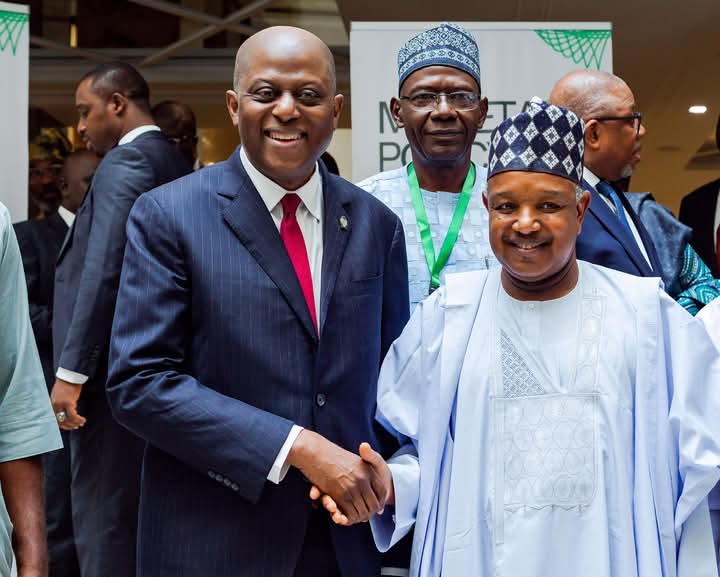The Minister of Budget and Economic Planning, Abubakar Bagudu, has praised the growing cooperation between Nigeria’s fiscal and monetary policy authorities, emphasising that this collaboration is crucial for the country’s economic progress.
Speaking at the Central Bank of Nigeria’s Monetary Policy Forum in Abuja yesterday Bagudu highlighted the significant strides made over the past 18 months in aligning the goals of both sectors.
He attributed much of the success to President Bola Tinubu’s deep understanding of the complexities between fiscal and monetary policies and his ability to balance them in line with the Renewed Hope Agenda.
Bagudu commended the leadership of the Minister of Finance and Coordinating Minister of the Economy, Wale Edun, and the Governor of the Central Bank of Nigeria, Olayemi Cardoso, noting their wealth of experience and past work with the president, which has been instrumental in this collaboration.
Acknowledging that fiscal and monetary policies do not always align, Bagudu stated that such divergences were healthy, as they enable necessary debates on priorities.
READ ALSO: Matawalle warns Amaechi to stop inciting violence or face legal consequences
He emphasised the importance of increasing the revenue-to-GDP ratio while balancing inflation with economic growth, particularly in an inclusive manner.
“The central bank and the fiscal authorities are clear in their priorities and objectives, and no doubt disagree. But that’s how it should be,” Bagudu explained.

“We also have to deal with balancing inflation and driving economic growth, especially in an inclusive manner, as outlined in the Renewed Hope Agenda.”
The minister pointed out that while the fiscal authority advocates for greater investment in domestic production, particularly in agriculture and solid minerals, the central bank has maintained its stance against direct intervention in these sectors.
Despite this, Bagudu stressed the vital role of investing in agriculture, citing security gains in regions like the Northwest and Northeast, which have improved agricultural production and contributed to lower food prices across the country.
Notably, Bagudu highlighted the success of states like Borno and Kaduna, where agricultural output has surged, with Borno’s harvests now comparable to pre-Boko Haram levels.
He urged continued focus on boosting domestic production to further reduce inflationary pressures.
READ ALSO: Bagudu outlines strategy to achieve N36.35trn revenue
“We might have been disappointed with some of the interventions in the past, but maybe we have gained knowledge to calibrate and ensure that we do better,” he said, emphasising the strong connection between domestic output, productivity gains, and inflation control.
Bagudu also reassured that the administration’s economic reforms are producing results and setting the country on a path toward inclusive growth and development.
He shared insights from recent meetings with global business leaders and rating agencies, noting their recognition of Nigeria’s bold reforms.
“We met with three ministers in Saudi Arabia who acknowledged that we are undertaking reforms even bolder than theirs,” Bagudu revealed. “They recognize we have done more in the last 18 months, and our challenges have been even greater due to the election.”
Bagudu expressed confidence in the ongoing collaboration between fiscal and monetary authorities, stating that it will continue to evolve into a policy mix that will foster deflation and generate double-digit inclusive growth.


